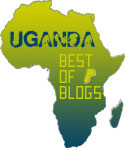GVO Summit, Day 1, Session 2
Session 2 is on citizen media and online free speech.
Wael Abbas (MisrDigital, Egypt)
Egypt is a "democratic charade" -- media subject to censorship, not allowed to start TV/radio station b/c state owns airwaves, closing newspapers, confiscating video/audio
"dire need for alternative source of media in Egypt that delivers information to the public, uncensored"
street protests not getting enough coverage (anti-govt), so bloggers started capturing it & delivering it to public -- erasing line between blogger and journalist
blogging in Egypt helped jumpstart/lead print media -- tackled taboo issues, exposed corruption -- papers use info from bloggers
Christian blogger/bloggers organizing sit-ins/demos have been shut down
character assassination by govt on bloggers -- accused of converting to Christianity, being gay
lots of YouTube use
Ory Okolloh, Kenya
covered post-election crisis in Kenya
media ban: blogging became more critical
the good: her blog wasn't shut down, no official censorship (perhaps b/c govt. didn't know or wasn't sophisticated enough to shut down), Kenyans generally able to blog freely
activists needed mobile phone credit during election crisis -- had doubled in price, was being used as currency -- shows importance of SMS/phones
journalists were contacting bloggers and having them publish information (both b/c of ban and because they were worried about govt. reaction)
tried to distinguish between fact & gossip -- lots of reports coming in during crisis
opened blog to comments -- gave access to ppl who weren't experienced bloggers
the bad: a lot of self-censorship in blogging community, partisanship, trying to be neutral -- affected tone of debate/credibility, voicing opinion can offend some people who might stop following information, internet access harder to get b/c mobility restricted by violence, phone credit expensive so Twittering hard -- have to choose between Twitter and talking to family
had to moderate comments for the first time -- comments intense and prolific, some threatening (and sexually violent: threats of rape, etc.) -- did fear for safety
Internet became a tool for Kenyans in diaspora
good work that some bloggers were doing was overshadowed by hate speech from others
Ushahidi -- developed to track post-election violence
Au Wai Pang (Alex), Singapore
involved in gay rights movement in Singapore
Internet mostly uncensored in Singapore, but ppl act like it's not -- "psychology trumps technology" -- how to overcome this?
media, trade unions both govt. controlled, detention w/o trial (up to 29 years), opposition members sued for libel
many people live comfortably -- don't think censorship is a big deal; focus is on career instead of politics/social issues
peer pressure: family, company pressure you not to speak out
govt. suspicious of Internet but doesn't censor b/c Singapore is business/financial center
how to alter psychology? ppl. need to participate offline, anonymity won't change society
Oiwan Lam, Hong Kong
political/historical context of censorship of "indecent" content in HK -- HK one of most "sexually repressive" places in the world
colonial regime: public order ordinance, restricted freedoms of speech and assembly, ordinances controlling "indecencies" usually prompted by local govt.
"sexy photo gate" -- netizen detained for 2 weeks w/o bail for publishing photos deemed "indecent"
statue of David classified as indecent
Amine, Morocco
YouTube video of police taking bribes from drivers (maker of video calls self "Targuist Sniper") -- in response, Morocco created anti-corruption commission, arrested several policemen
but then, tried to find Targuist Sniper -- arrested multiple people known to be internet-savvy, but while they were in jail, more videos were posted (oops)
is govt. reaction part of deep authoritarianism or more a misunderstanding of technology?
videos viewed by more than 1.5 million ppl on YouTube, almost 3.5 million if you count repostings of videos
other ppl started emulating tactic (in TanTan, Nador, Casablanca)
Morocco not "notoriously repressive," but it does have a strange relationship to Internet -- doesn't block blogs, but it is wary of web 2.0 tools (YouTube blocked for several days in 2007, Google Maps blocked for past 2 years)
Fouad Mourtada put in prison for posting a fake Facebook profile of the king's brother -- one of the questions he got during interrogation was, "why did you invent Facebook.com?" -- shows clear lack of understanding of Internet
Moroccan govt. denied protests, broadcast interviews that claimed everything was pleasant -- YouTube videos of violence contradicted official line
hard to know how govt. perceives Internet, but recently published magazine article says web 2.0 is "source of interference" between govt. and public, blogs have undeclared intentions and are published w/o rules or professionalism
Hamid, Iran
Iranian censorship, both on- and offline, has increased in last few years: he joked that it creates jobs
Iranian govt. announced that 10 million sites have been blocked, 90% for immoral content (including photos of Nicole Kidman)
blogs by women heavily filtered
Note: You can also watch a live feed of the summit, follow those who are twittering from it, look at the slides, and check out the photos and live blog.
Wael Abbas (MisrDigital, Egypt)
Egypt is a "democratic charade" -- media subject to censorship, not allowed to start TV/radio station b/c state owns airwaves, closing newspapers, confiscating video/audio
"dire need for alternative source of media in Egypt that delivers information to the public, uncensored"
street protests not getting enough coverage (anti-govt), so bloggers started capturing it & delivering it to public -- erasing line between blogger and journalist
blogging in Egypt helped jumpstart/lead print media -- tackled taboo issues, exposed corruption -- papers use info from bloggers
Christian blogger/bloggers organizing sit-ins/demos have been shut down
character assassination by govt on bloggers -- accused of converting to Christianity, being gay
lots of YouTube use
Ory Okolloh, Kenya
covered post-election crisis in Kenya
media ban: blogging became more critical
the good: her blog wasn't shut down, no official censorship (perhaps b/c govt. didn't know or wasn't sophisticated enough to shut down), Kenyans generally able to blog freely
activists needed mobile phone credit during election crisis -- had doubled in price, was being used as currency -- shows importance of SMS/phones
journalists were contacting bloggers and having them publish information (both b/c of ban and because they were worried about govt. reaction)
tried to distinguish between fact & gossip -- lots of reports coming in during crisis
opened blog to comments -- gave access to ppl who weren't experienced bloggers
the bad: a lot of self-censorship in blogging community, partisanship, trying to be neutral -- affected tone of debate/credibility, voicing opinion can offend some people who might stop following information, internet access harder to get b/c mobility restricted by violence, phone credit expensive so Twittering hard -- have to choose between Twitter and talking to family
had to moderate comments for the first time -- comments intense and prolific, some threatening (and sexually violent: threats of rape, etc.) -- did fear for safety
Internet became a tool for Kenyans in diaspora
good work that some bloggers were doing was overshadowed by hate speech from others
Ushahidi -- developed to track post-election violence
Au Wai Pang (Alex), Singapore
involved in gay rights movement in Singapore
Internet mostly uncensored in Singapore, but ppl act like it's not -- "psychology trumps technology" -- how to overcome this?
media, trade unions both govt. controlled, detention w/o trial (up to 29 years), opposition members sued for libel
many people live comfortably -- don't think censorship is a big deal; focus is on career instead of politics/social issues
peer pressure: family, company pressure you not to speak out
govt. suspicious of Internet but doesn't censor b/c Singapore is business/financial center
how to alter psychology? ppl. need to participate offline, anonymity won't change society
Oiwan Lam, Hong Kong
political/historical context of censorship of "indecent" content in HK -- HK one of most "sexually repressive" places in the world
colonial regime: public order ordinance, restricted freedoms of speech and assembly, ordinances controlling "indecencies" usually prompted by local govt.
"sexy photo gate" -- netizen detained for 2 weeks w/o bail for publishing photos deemed "indecent"
statue of David classified as indecent
Amine, Morocco
YouTube video of police taking bribes from drivers (maker of video calls self "Targuist Sniper") -- in response, Morocco created anti-corruption commission, arrested several policemen
but then, tried to find Targuist Sniper -- arrested multiple people known to be internet-savvy, but while they were in jail, more videos were posted (oops)
is govt. reaction part of deep authoritarianism or more a misunderstanding of technology?
videos viewed by more than 1.5 million ppl on YouTube, almost 3.5 million if you count repostings of videos
other ppl started emulating tactic (in TanTan, Nador, Casablanca)
Morocco not "notoriously repressive," but it does have a strange relationship to Internet -- doesn't block blogs, but it is wary of web 2.0 tools (YouTube blocked for several days in 2007, Google Maps blocked for past 2 years)
Fouad Mourtada put in prison for posting a fake Facebook profile of the king's brother -- one of the questions he got during interrogation was, "why did you invent Facebook.com?" -- shows clear lack of understanding of Internet
Moroccan govt. denied protests, broadcast interviews that claimed everything was pleasant -- YouTube videos of violence contradicted official line
hard to know how govt. perceives Internet, but recently published magazine article says web 2.0 is "source of interference" between govt. and public, blogs have undeclared intentions and are published w/o rules or professionalism
Hamid, Iran
Iranian censorship, both on- and offline, has increased in last few years: he joked that it creates jobs
Iranian govt. announced that 10 million sites have been blocked, 90% for immoral content (including photos of Nicole Kidman)
blogs by women heavily filtered
Note: You can also watch a live feed of the summit, follow those who are twittering from it, look at the slides, and check out the photos and live blog.
Labels: global voices, gvsummit08






